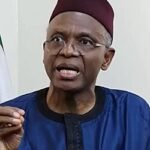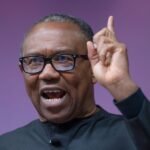By Stanley Nkwocha
The trademark of governance in a democracy is its regular consolidation. This has been the challenge with Nigeria’s democratic journey since 1999. Yearly, at individual and corporate governance levels, aspirations are set out to be pursued – objectives to be achieved and missions to which unflinching commitment is required. Where the vision is strong, the pursuit is fierce.
The slogan of the President Bola Ahmed Tinubu presidency on assumption of office on May 29, 2023 was, and remains, a significant cut-down on insecurity, poverty, enhanced transparency in the conduct of government affairs and management of the nation’s commonwealth, increased provision of infrastructures as well as enhancing economic condition of Nigerians.
In this pursuit, President Tinubu and his deputy, Vice President Kashim Shettima, set out to pursue economic transformation with all the vigour available to them. They spent the first few months criss-crossing the length and breadth of the global investment space, all in a bid to explain to the world the ease of doing business in Nigeria and why the country should be the investor’s delight.
Undoubtedly, the last two years of President Tinubu and Vice President Shettima have unveiled what is possible where a president is engrossed in selfless service to his nation, and his deputy is devoted to his boss’s policies, principles and ideals. Senator Shettima has consistently declared that he will remain loyal to his principal, President Tinubu, whom he has described as a reformer, builder and visionary leader. At various fora, he has constantly assured Nigerians that the President is fully committed to his campaign promises encapsulated in the administration’s Renewed Hope Agenda.
Two years down the line, it is evident that the administration’s multi-pronged approach is working. The economy has witnessed positive growth in the last two years and is progressing strongly. Just like the President has maintained that he will not have respite until Nigeria’s reputation as a $1trillion economy and investment destination is restored, his deputy, Senator Shettima has sustained the tempo in his capacity as Chairman of the National Economic Council (NEC), with meaningful government interventions, programmes and initiatives being spearheaded in the office of the Vice President.
Below are some of the key accomplishments of the Tinubu administration initiated and overseen by the office of the Vice President in the last two years:
AGRICULTURE
It has been manifestly clear from the beginning in 2025, when President Tinubu was seeking the position of the president of the country, that agriculture was going to be the major thrust of his administration. It is not surprising to see the President living up to that promise. The administration set out a regime of incentives to make farming more attractive once again, as it was in the 60s when Nigeria had groundnut pyramids in the North, cocoa in the West and palm oil in the East. Then Nigeria had enough to feed its population and an excess for export.
To this effect, Vice President Shettima embarked on international diplomacy to attract agricultural investments. As chairman of the NEC, he has been overseeing several agricultural initiatives. At the 3rd Belt and Road Initiative (BRI) Forum in China in November 2023, he promoted Nigeria as a safe investment destination for the agricultural sector. During his visit to the United States for the African Development Bank (AfDB) World Food Prize-facilitated Norman Borlaug International Dialogue, he sought investors’ commitments towards Nigeria’s agro-food sector development.
The Tinubu administration, through the Ministry of Agriculture and Food Security, signed a Memorandum of Understanding (MoU) with the American agricultural machinery manufacturer John Deere. The partnership aims to establish a tractor assembly plant in Nigeria to boost agricultural mechanisation and food production. Under the agreement, John Deere is to supply about 2,000 tractors annually to Nigeria over the next five years. The Vice President played a key role in initiating this partnership during his visit to the United States, where he met with John Deere officials.
Also, the international engagement tripled the African Development Bank’s (AfDB) agricultural interventions in Nigeria from $500 million to over $1 billion. The cumulative effects of the commitment from AfDB include the groundbreaking for the federal government’s Specialised Agro-Processing Zones (SAPZ) recently performed in Kaduna and Cross River State to revitalise Nigeria’s agricultural sector and reduce food import dependence. SAPZs are designed to industrialise rural economies by adding value to agricultural products, attracting investment, and reducing youth unemployment. Others are improved fertiliser availability for farmers, the establishment of Agro-Rangers to address farm security issues, and the implementation of modern agricultural practices.
In a bid to advance the Green Imperative Agricultural Project, the Vice President presided over the commercial signing of the $1.1 billion Nigeria-Brazil Green Imperative Project at the Presidential Villa. This initiative seeks to modernise Nigeria’s agriculture sector by supporting smallholder farmers and integrating them into global value chains. A government-catalysed, private-sector-driven agricultural industrialisation programme in Nigeria, VP Shettima is championing the Green Imperative Programme as an important component of the government’s broader strategy to boost agricultural productivity, increase crop yields, and make Nigeria self-sufficient in food production.
And to lead by example, Vice President Shettima launched the Kashim Shettima Foundation’s Agricultural Empowerment Programme in 2024. This personal initiative includes the distribution of essential farming inputs such as tractors, seeds, fertilizers, and herbicides to beneficiary farmers for the 2024 farming season; financial support of N100,000 per month to 50 beneficiaries for 4 months during the planting period, and the provision of startup funds up to N30 million for farmer cooperatives to establish commercial farms.
FOOD SECURITY
Throughout the history of humanity, agriculture has always played a pivotal role in social and economic development. Firstly, robust agriculture engagement ensures food security, which is the fundamental and best form of security because a nation that cannot feed its population is vulnerable, and in fact is sitting on a time bomb. When President Tinubu came to power in 2023, the first appeal he made was for Nigerians to return to the land, for therein lies true prosperity.
Acting on the President’s directive, Vice President Shettima inaugurated the Presidential Food Systems Coordination Unit (PFSCU), an initiative of the administration to tackle hunger and food insecurity in Nigeria. The PFSCU is tasked with harnessing resources and ideas from stakeholders, including state governors, to modernise farming practices, increase crop yields, and transform Nigeria into a self-sufficient food producer. If a person is food secure, it typically means that sufficient quality food is available, they have enough resources to buy food for a nutritious diet, and they have stable access to adequate food at all times.
NCP AND ECONOMIC REFORMS
In 2023, Vice President Shettima inaugurated the National Council on Privatisation (NCP) committee to drive the economic reforms of the Renewed Hope administration. The Council has remained a key institution in Nigeria’s journey toward a market-driven economy, balancing the challenges of reforms with the need for sustainable development. In late 2023, Vice President Kashim Shettima chaired a meeting of the National NCP focused on the recapitalisation and restructuring of the Bank of Agriculture (BOA). This initiative has helped greatly in revitalising the bank and making it more effective in supporting Nigeria’s agricultural sector. The Vice President has been actively involved in efforts to transform the BOA into a more robust financial institution capable of providing enhanced support to farmers and agribusinesses across Nigeria. Under Shettima’s supervision, there have been discussions about increasing the BOA’s capital base to strengthen its capacity to provide loans and other financial services to the agricultural sector. The Office of the Vice President has been working closely with the Ministry of Agriculture and Food Security and other relevant stakeholders to streamline the operations of the BOA and make it more accessible to smallholder farmers. There have been plans to leverage technology to improve the BOA’s reach and efficiency, including the possible introduction of digital banking services tailored for farmers. This is because the Vice President has been advocating for partnerships between the BOA and international development finance institutions to increase the pool of funds available for agricultural lending.
NUTRITION
Under the leadership of Vice President Kashim Shettima as Chairman of the National Council on Nutrition, Nigeria launched the transformative Nutrition 774 Initiative, a bold and historic step to tackle malnutrition in all 774 local government areas. Designed around the principle of “One Plan, One Report,” the initiative ensures alignment and coordination across federal, state, and local levels, anchoring nutrition at the heart of governance. The initiative was formally endorsed by the National Economic Council (NEC) and launched with a compact signed by all 36 state governors, signalling unprecedented political commitment to ending malnutrition. To date, over 200 Local Government Committees on Food and Nutrition (LGCFN) have been activated. In another first, House Committees on Food and Nutrition have been established at both the federal and state levels to institutionalise legislative support and drive budget prioritisation. As Nigeria’s first-ever government-led nutrition framework, and in line with the National Multi-Sectoral Plan of Action for Food and Nutrition, Nutrition 774 provides a structured, multisectoral platform to align all actors—public, private, and development partners—around shared goals of improved financing, stronger accountability, and measurable results. The framework champions local ownership and cultural relevance, empowering communities to lead in addressing malnutrition based on their unique cultural, social, and environmental realities.
HUMAN CAPITAL DEVELOPMENT (HCD) AND EDUCATION
As part of its resolve to position the nation among top 80 countries on the global Human Capital Index (HCI) by building a healthier, better-educated, and empowered Nigeria, the Tinubu administration stepped up government’s Human Capital Development (HCD) initiative aimed at improving education, healthcare, and skills training across the country to boost economic growth and create a more productive workforce. Under the chairmanship of Vice President Shettima, NEC took the initiative to its second phase (HCD 2.0), which focuses on areas like gender equality, climate change, digital economy, financial inclusion, and food and nutrition. It also aims to address unemployment, the informal sector, and low labour force participation. About 24 million Nigerians are set to benefit from the federal government’s Human Capital Development initiative, which aims to improve education, healthcare, and skills training across the nation. During the HCD Steering Committee meeting, VP Shettima insisted on swift, data-driven implementation of education, health, and workforce programmes across states. To this end, he launched the HCD Dashboard to monitor progress on key indicators like youth unemployment and learning poverty.
Also, the Vice President, implementing President Tinubu’s educational reform vision, launched the Accelerated Senior Secondary Education Programme (ASSEP), an initiative aimed at overhauling Nigeria’s educational infrastructure and modernising curriculum delivery systems. This programme addresses critical gaps in the educational sector while preparing students for the demands of a rapidly evolving global economy.
MSMEs
The Expanded National MSME Clinics is another initiative launched by the Tinubu administration to support and empower micro, small, and medium enterprises (MSMEs) across Nigeria, including in the agricultural sector. Vice President Kashim Shettima has played a central role in championing and overseeing the MSME Clinics programme, launching editions in states Benue, Ogun, Enugu, Jigawa, Borno and Ekiti States, with federal government grants for business owners. The MSME Clinics aim to boost economic empowerment and support small-scale enterprises, including agricultural businesses, by facilitating access to finance, markets, skills, and regulatory compliance. The MSME Clinics have led to the launch of major ultramodern fashion hubs in these states. The fashion hubs are expected to create millions of jobs.
ENERGY AND INFRASTRUCTURE
In April 2025, Vice President Shettima inaugurated the Board of the Nigerian Independent System Operator (NISO) to address national grid reliability. Also, VP Shettima, in meetings with the World Economic Forum President and other global stakeholders, championed the African Atlantic Gas Pipeline and Lake Chad recharge. These projects aim to address energy shortages in West Africa, strengthen Nigeria’s export footprint, and boost agricultural resilience in the Sahel.
The commissioning of the 181MW Geometric Power Plant in Aba is a significant addition to Nigeria’s electricity generation capacity under the Tinubu administration, providing much-needed power to industrial and commercial users in the South East region. The Vice President also launched strategic collaborations between Niger Delta Power Holding Company Limited (NDPHC) and private sector partners to supply dedicated power to major industrial clusters. The initiative began with the Agbara Industrial Cluster in Ogun State and aims to provide a consistent, reliable power supply without requiring public funds injection.
His leadership in chairing critical decisions to decentralise the national grid, as directed by President Tinubu, is a strategic shift toward more resilient and efficient power distribution systems that can better serve Nigeria’s diverse geographical and economic needs.
REVITALISATION OF THE NIGERIA-BRAZIL STRATEGIC DIALOGUE
In March, VP Shettima coordinated preparations for the revival of Nigeria-Brazil bilateral ties, which had stalled for over a decade. Discussions are now set to enhance cooperation in agriculture, health, military technology, and tourism, anchored on the upcoming Brazil-Nigeria Strategic Dialogue Mechanism.
RSPIC
The Tinubu administration launched the Resettlement Scheme for Persons Impacted by Conflict (RSPIC), a national initiative aimed at addressing the humanitarian crisis caused by internal displacements across Nigeria. The project, which is in its pilot phase, focuses on 7 states disproportionately affected by farmer-herder conflicts. They are Sokoto, Kebbi, Benue, Katsina, Zamfara, Niger, and Kaduna. Last year, Vice President Shettima, representing President Tinubu, presided over the groundbreaking ceremony for the RSPIC project in Kaduna State. Earlier, VP Shettima had inaugurated a steering committee to coordinate the implementation of the RSPIC initiative, fulfilling President Tinubu’s promise to improve the lives of Nigerians affected by conflict.
While the primary focus of the RSPIC is on providing relief and rehabilitation for conflict-affected communities, it is also linked to the administration’s efforts to address food insecurity in Nigeria. The areas targeted by the RSPIC have been significantly impacted by farmer-herder conflicts, which have disrupted agricultural production and food supply. By resettling and rehabilitating these conflict-affected communities, the RSPIC aims to restore their livelihoods and access to food, thereby contributing to the broader goal of improving food security in Nigeria.
FINANCIAL INCLUSION
Vice President Shettima has played an important role in advancing financial and economic inclusion as a foundation stone of the administration’s development agenda. In April 2024, he led the signing of the landmark Aso Accord for Economic and Financial Inclusion, uniting federal and state actors, financial institutions, and development partners around a shared commitment to integrate over 30 million unbanked Nigerians into the formal economy. He followed this with the launch of a national operating model aimed at transforming Nigeria into a $1 trillion economy by 2030 through improved access to credit, digital payments, and financial literacy. And to promote economic growth and financial inclusion, the Vice President, in February 2025, inaugurated the Presidential Committee on Economic and Financial Inclusion (PreCEFI). The financial inclusion efforts of the administration have been serving as a vehicle that helps Nigeria to bring life to dead capital.
Indeed, while the first half of President Tinubu’s first term in office can best be described as a remarkable and impactful success story, the unalloyed belief in his economic policies, institutional reforms and developmental ideas, especially by his lieutenants led by VP Shettima, is as inspirational as it is legendary.
As the administration steps into mid-term of its first term in office, there is no doubt that President Tinubu’s foresight, vision, reforms, well-thought-out policies and programmes will impact tremendously on the lives of Nigerians. His absolute trust in the capacity of the Vice President and all others in the cabinet to plan and execute the programmes and interventions of the Renewed Hope Agenda will motivate them to ramp up the business of governance for the overall benefit of the people.
Nkwocha is the Senior Special Assistant, Media and Communications to the President (Office of the Vice President)










